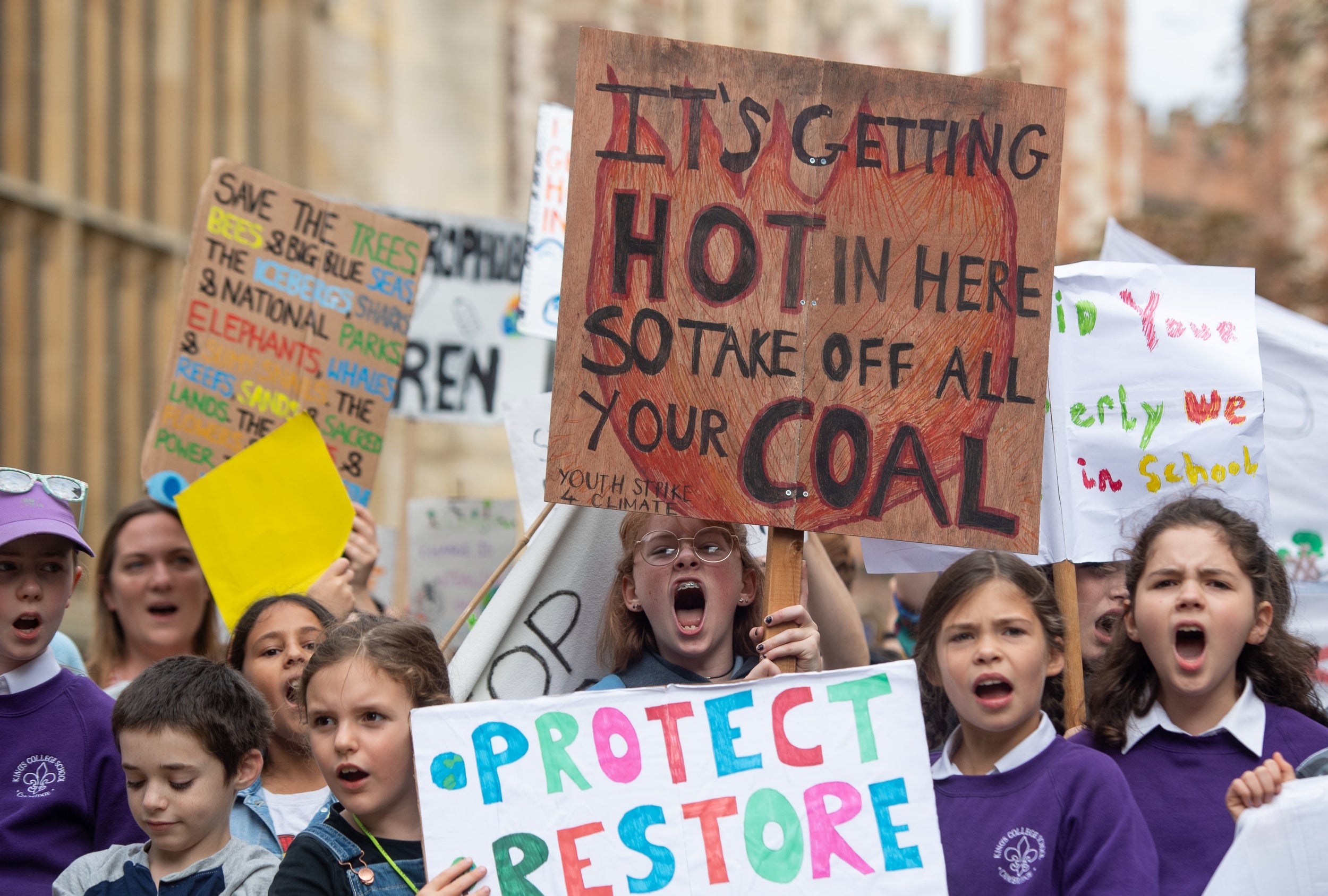Climate strike: Key stats from protests as more than 4,600 events are held in 150 countries
Across the UK, 200 events took place with 500 organisations and 1,000 companies out in support

Politicians and businesses are facing calls to take urgent action as more than 4,600 climate protests take place in 150 countries in what is believed to be the largest climate protest in history.
More than 200 events took place across the UK, with, for the first time, adults being encouraged to join the youngsters as they strike, according to the UK Student Climate Network (UKSCN).
The UK campaign group 350.org says more than 70 unions, 500 organisations and 1,000 companies came out in support of the strikes.
Around 100,000 people are believed to have taken part in a rally in central London, with more than 20,000 thought to have marched in Edinburgh and 10,000 in Brighton.
In Belfast, organisers put the turnout at between 3,000 and 4,000, with young people taking over the Corn Market area of the city centre and staging a “mass die-in”, before marching towards City Hall.
Some of Friday’s first protests were held in Australia, where an estimated 300,000 people gathered at more than 100 rallies calling for action to guard against climate change. Eight hundred events are taking place in the US and 400 in Germany.
The protests are part of a snowballing movement sparked by teenage activist Greta Thunberg’s school strikes outside the Swedish parliament.
Global warming caused by heat-trapping greenhouse gases from burning fossil fuels has already led to droughts and heatwaves, melting glaciers, rising sea levels and floods, scientists say.
The protests come ahead of a climate action summit in New York convened by UN secretary-general Antonio Guterres to urge countries to up their climate efforts.
Under the international Paris Agreement, countries pledged to curb global temperature rises to “well below” 2C above pre-industrial levels and pursue efforts to keep them to 1.5C.

But action pledged so far by governments puts the world on track to warm by almost 3C.
The UK has strengthened its legal target to cut emissions to “net zero” by 2050, following recommendations from its official advisers, the Committee on Climate Change, that such a move is achievable and would have economic benefits.
But environmental groups have called for an earlier net zero target date, for example 2045, while protesters with Extinction Rebellion demanding as early as 2025.
The United Nations calls climate change the “defining issue of our time” and is hosting a New York summit on it next week.
But reformers within say in the letter addressed to secretary-general Antonio Guterres that it needs more radical change to get its own house in order.
The United Nations, a 75-year-old institution employing 44,000 people in more than 60 countries, emitted 1.86 million tonnes of carbon dioxide equivalent in 2017, its own data show.
That equates to a carbon footprint larger than several of its member states, including Malta and Liberia, according to statistics from the Global Carbon Atlas for the same period.
Join our commenting forum
Join thought-provoking conversations, follow other Independent readers and see their replies
Comments
Bookmark popover
Removed from bookmarks